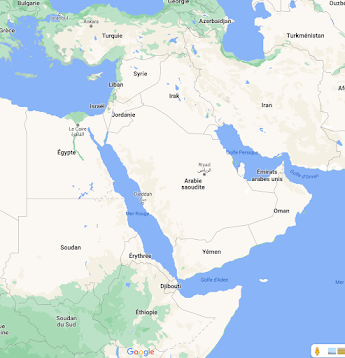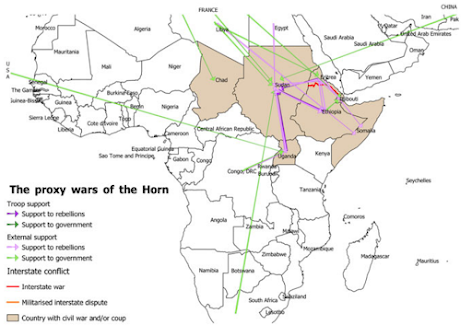8 - Proxy politics, part 3: Turkey and the Nile River Basin
Hi everyone and welcome back to my blog! This will be my last entry on proxy politics and it will discuss Turkey's involvement in the Nile River Basin. It will also be my last entry on this blog.
Turkey’s involvement is much more recent than that of the Gulf countries, but it is nonetheless important. The Turkish government started the ‘African expansion’ in 2003, a strategy aiming to develop economic and strategic relations with African countries, and the country is now a major investor in Ethiopia and Sudan (Cascao et al. 2019). Ankara also used to have a good relationship with Cairo. However, the former’s support of Mohamed Morsi (from the Muslim Brotherhood) after the Egyptian revolution of January 2011 became a source of conflict after the coup in 2013. It led to damaged diplomatic relationships and interrupted economic investment with the majority of the USD 5 billion invested in Egypt being frozen (Bakeer 2013). In March 2021, Cairo denied having resumed diplomatic contact with Ankara.
For Ethiopia, Turkey is crucial for its Growth and Development Plans. Egypt is Ethiopia’s first trading partner, with more than 40% of its foreign direct investment inflows between 2014 and 2017 (Cascao et al. 2019). In fact, half of Addis Ababa’s investment in the continent goes towards Addis Ababa. This relationship is also political as supporting Ethiopia means weakening Egypt. The latter is also investing in the agricultural sector. For example, a Turkish firm has invested over USD 1 billion (75% of the project) in a large-scale irrigation scheme, which would divert water from the Nile and away from Egypt (Ecofin News, 2016).
Turkey is also involved in Sudan. Agreements have been signed between the two governments, such as the Bilateral Agricultural Cooperation and Partnership in 2014 (Cascao et al. 2019). Turkey currently has over USD 2 billion invested in Sudan.
Turkey’s involvement in the Nile River Basin has two hydro-geopolitical impacts. First, it entails a change of bargaining and material power balance (Cascao et al. 2019). Indeed, it reduces economic and power asymmetries between Egypt (the hydro-hegemon) and the rest of the Nile riparian. This is enabled by different factors. The multitude of investments bring economic growth, the new projects increase the water use, and the countries now have the possibility to fund ambitious infrastructures. It makes Sudan and Ethiopia less dependent on traditional actors and means of financing projects. Second, Turkey’s involvement also has a more direct impact on water use and allocation (Cascao et al. 2019). All this investment in the agricultural sector and hydraulic infrastructure is bound to take a toll on the Nile water flow, thus decreasing Egypt’s share.
Overall, the Gulf countries and Turkey are major economic actors in the Nile River Basin. However, their involvement goes much further. Investments in irrigation schemes, agricultural lands and other projects linked with using Nile water resources will inevitably change water uses and thus recast the dice in terms of water allocation. Moreover, the Nile is also used as a ‘card’ for geopolitcal means. Investments and agreements with certain countries serve to extend influences or to weaken other countries.
It is also important to note that, once countries are involved in proxy relationships, it is hard to step out of them to find a compromise. The patrons are stuck in a ‘prisoners’ dilemma’ in which they wait for the other to end proxy support (Brewer 2011). Therefore, the development of proxy relationships in the Nile River Basin is not good news for the stability of the region and for the resolution of conflicts such as the GERD.
I hope you enjoyed reading my blog. My objective was to entangle some of the complexity of the hydropolitics in the Nile River Basin. Of course, it is not something that can be done in 8 blog posts, but I realised while I was writing my entries that water is not simply a life resource, it is also a political tool. Whether it is with the GERD challenging Egypt's hydro-hegemony, or with proxy politics being a mean to gain geopolitical power and influence, water is deeply political.




Comments
Post a Comment